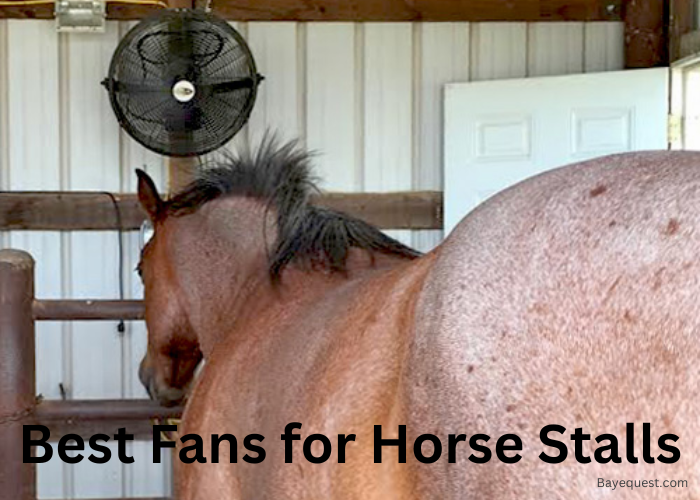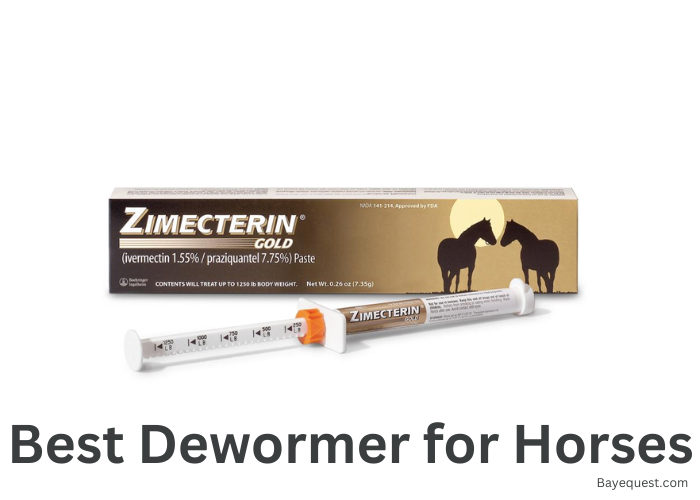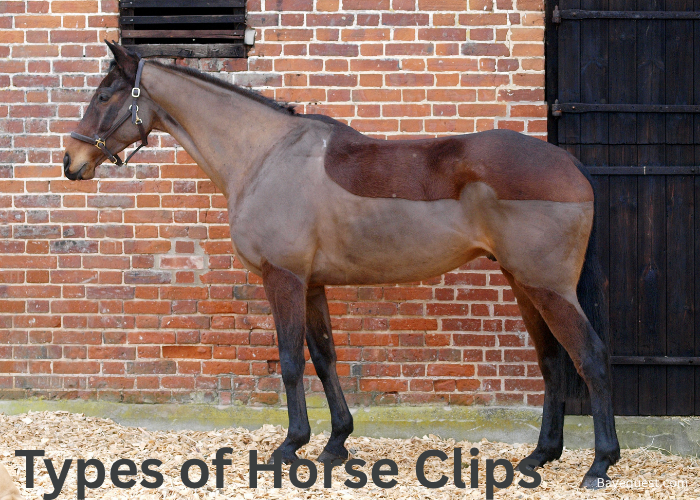Horses and foam. Not the kind you find on your latte. We’re talking about that strange, frothy mess around your horse’s mouth.
It can look like they’ve been blowing bubbles all day. Some say it’s a sign of contentment. Others think it signals trouble.
So, what’s the real deal? Is it a cause for panic or just another day in a horse’s life? Before you start worrying or wiping it away, let’s dive in and find out what that foamy mouth is all about.
Horse Foaming at Mouth: Key Takeaway
Horse foaming at the mouth often happens when a horse produces excess saliva while chewing or working the bit. This foaming can indicate relaxation and proper salivation. However, not all horses foam when relaxed, and some may foam due to other reasons like dental issues or stress, which may need attention.
What is the Foam Around a Horse’s Mouth?
The foam you see around a horse’s mouth while riding is due to how saliva production interacts with the mechanical action of the bit.
Horses produce saliva, which contains enzymes to start breaking down food. The bit in the horse’s mouth encourages it to chew when riding.
This chewing isn’t just a reaction to the bit. It also helps the horse adjust and feel comfortable with the bit’s presence. This constant chewing activates the salivary glands to produce more saliva.
As the horse chews and the bit moves, the saliva mixes with air, creating the frothy foam you see. It’s similar to whisking a liquid to incorporate air in cooking.
Should a Horse Foam at the Mouth?
Yes, a horse can foam at the mouth, and it is usually normal. Foaming often means the horse is relaxed and chewing the bit well, creating saliva.
However, not all foaming is a sign of calmness. Sometimes, it can be due to stress, dental issues, or irritation.
Watch your horse’s behavior closely. If the foaming seems excessive or unusual, it might be time to consult a vet.
Degree of Foaminess
The degree of foaminess around a horse’s mouth can vary. This often provides insights into the horse’s state during riding or other activities.
Here’s how to interpret different levels of foam:
Light foam. A light layer of foam around the horse’s mouth indicates the horse is relaxed and comfortably accepting the bit. This is usually seen as a thin, white layer of bubbles, which is okay in equestrian sports. It suggests that the horse is responsive and not stressed.
Moderate foam. A moderate amount of foam can still be normal, especially when the horse is active. This level of foam indicates that the horse is working well with the bit, although it might also suggest slight overexertion or stress.
Heavy foam. Excessive foam, especially if it’s dripping or the foam has a different texture, can be a sign of distress or discomfort. It might indicate that the bit is causing irritation, the horse is experiencing dental or gum issues, or the horse is overly stressed and possibly overheating.
Why Do Horses Foam at the Mouth?
Let’s understand some of the causes of foam at a horse’s mouth to help us manage the situation effectively:
1. Your horse is relaxed
When a horse is relaxed and comfortable with the bit in its mouth, it chews more and produces saliva. This saliva gets aerated through the movement of the bit and the horse’s chewing, resulting in a light, frothy foam.
This type of foam is seen as a good sign in equestrian circles. It indicates that the horse is at ease and cooperating with the rider’s commands, showing a positive connection between the horse and the rider.
2. Stress
If a horse is stressed, it may produce more saliva. Stress can cause a horse to chew on the bit excessively or uncomfortably, leading to increased foam formation.
This foam might be thicker and more copious than the foam seen when a horse is relaxed. Observing the context and other stress indicators can help identify if foam is due to stress.
3. Rabies
Rabies in horses is rare but serious. One symptom can be excessive drooling or foaming at the mouth. This occurs because rabies affects the nervous system, impairing the horse’s ability to swallow.
The saliva builds up and forms foam. Rabies is a medical emergency; other symptoms might include behavioral changes and paralysis.
4. Latherin
Latherin is a protein in horse sweat that helps spread the sweat over the coat to enhance evaporative cooling. It also occurs in saliva, contributing to the foaming in a horse’s mouth.
When a horse is working hard, latherin mixes with saliva and increases the foaminess, aiding in both cooling and moisture distribution.
5. Choking
Choking in horses refers to a blockage in the esophagus, not the airway. It’s usually caused by food material, especially if the horse eats too quickly or doesn’t chew its food well.
The blockage leads to a buildup of saliva, which can cause foam at the mouth as the horse tries to clear the obstruction. Symptoms include distress, coughing, and excessive salivation.
Seek immediate veterinary intervention to resolve the choke and prevent further complications.
6. Slobbers
Slobbers in horses occur when they ingest clover infected with a fungus that produces slaframine. When this happens, they produce excess saliva.
This condition results in drooling and foaming but is harmless, although it can be uncomfortable and messy for the horse. Removing the clover source usually resolves the issue.
7. A tense rider
A tense rider can communicate stress to the horse through stiff, rigid handling, particularly with the reins. This can make the horse feel pressured and uncomfortable, causing it to chew on the bit excessively and produce more foam.
Learning to ride with a relaxed and balanced posture can help alleviate this problem.
8. Dental issues
Dental issues in horses, such as sharp edges on teeth, abscesses, or gum disease, can also lead to increased foaming.
These dental problems can make the horse uncomfortable, causing it to chew differently or more excessively.
Regular dental check-ups are essential to ensure your horse’s mouth stays healthy and to prevent excessive foaming.
Read also: How to Remove Wolf Teeth in Horses.
9. Mouth injury
Mouth injuries can cause a horse to produce excess saliva as a response to pain and irritation, which can lead to foaming. The bit, rough handling, or an accident might cause these injuries.
You need to treat the mouth injuries and ensure the injuries heal well.
10. An ill-fitting or incorrectly placed bit
When a bit doesn’t fit well or is placed incorrectly, it can rub and pinch, causing discomfort and even pain. This discomfort leads the horse to chew more to try to alleviate the irritation, which increases saliva production and results in foaming.
Properly fitting the bit to the horse’s mouth size and shape helps to prevent these issues. Regular checks and adjustments by knowledgeable personnel can ensure the bit does not harm the horse’s mouth.
11. Bacterial infections
Bacterial infections can cause inflammation and pain, leading to an increase in saliva production. Bacteria like Streptococcus equi can cause strangles, which may cause excessive drooling or foaming.
Treatment usually involves antibiotics and good, stable hygiene to prevent the spread of infection. Early veterinary diagnosis is crucial for effective management and recovery.
12. Toxins building up
When toxins accumulate in a horse’s body, one of the early signs can be excessive salivation, resulting in foaming at the mouth. These conditions interfere with the body’s ability to process and eliminate toxins, causing various systemic symptoms.
Seek immediate veterinary care to diagnose the specific cause and begin treatment to reduce toxin levels and support recovery.
13. Vesicular stomatitis
Vesicular stomatitis is a viral disease that affects horses. It causes painful blisters and sores in the mouth, on the tongue, and around the lips and nostrils. These sores can rupture, leading to excessive saliva production and foaming.
The virus can spread through contact with contaminated objects or other animals. Since there is no specific treatment, care focuses on supportive measures like soft foods and mouth rinses to relieve discomfort.
14. Equine viral arteritis
Equine viral arteritis is a contagious virus that affects horses. Its symptoms include fever, nasal discharge, respiratory distress, and leg swelling.
Excessive salivation and foaming may occur as part of the general response to the systemic infection. The virus is spread through aerosol droplets and contact with contaminated surfaces.
Vaccination and strict quarantine protocols are key to managing outbreaks. Infected horses need supportive care and may require anti-inflammatory medications to manage symptoms.
15. Poisoning
Poisoning in horses can occur when they ingest toxic substances. These can be found in contaminated feed, water, or certain plants that are naturally poisonous to horses.
Common toxic plants include yew, oleander, and certain types of laurel. Environmental chemicals like pesticides and insecticides can also pose a risk.
When poisoned, a horse’s body tries to expel the toxins, leading to symptoms like excessive salivation, which results in foaming at the mouth. Other signs may include equine colic, diarrhea, vomiting, tremors, or seizures.
What to Do When a Horse is Frothing at the Bit
When you notice your horse foaming at the mouth, take a calm and methodical approach to figure out what’s happening. Here’s what you can do:
Observe the context. First, look at what your horse is doing when the foaming occurs. If it’s during a ride, it might just be normal. But if you’re not riding and it seems unusual, pay attention to other signs.
Check for other symptoms. Look for other signs that might indicate stress or illness. Is the horse acting differently? Are there signs of discomfort or pain? Pacing, reluctance to eat, or changes in posture can offer clues.
Evaluate the environment. Consider anything new in the horse’s environment that could cause stress or an allergic reaction. This includes new plants, changes in feed, or exposure to toxins.
Inspect the horse’s mouth. Examine your horse’s mouth for any injuries, obstructions, or anything unusual like sores or swelling. Make sure the bit fits properly if you are riding.
Rest and monitor. If the foaming seems mild and there’s no immediate cause for concern, rest your horse and keep an eye on them. The foaming sometimes stops once they relax or the minor irritation passes.
Call your vet. If you’re unsure of the horse’s signs, make a call to your vet. They can give you advice over the phone or come out to examine the horse if needed.
Situations that Require Immediate Veterinary Attention
When your horse is foaming at the mouth, there are some situations where you should call the vet right away. Here are a few scenarios that need immediate attention:
Excessive foam with distress signs. If your horse is producing a lot of foam and seems in distress, don’t wait. These could be signs of colic or severe discomfort.
Change in behavior or appearance. If foaming is accompanied by changes in behavior, or if there are physical changes such as swelling or sores in the mouth, it’s time to call the vet. These symptoms could indicate something serious like an infection or poisoning.
Foaming with other illness signs. If your horse is foaming along with other symptoms, like coughing, difficulty breathing, or a high temperature, get in touch with your vet. These could be signs of respiratory or viral infections.
No obvious cause. If your horse starts foaming at the mouth and there’s no clear reason, like during exercise or after eating, and it doesn’t stop fairly quickly, get a vet involved.
Care Tips and Preventative Measures
Taking good care of your horse involves various preventive measures and care practices. These include:
Proper oral hygiene for horses
Maintaining good oral hygiene is crucial for horses. Regular dental check-ups, at least once a year, are essential to identify and resolve dental issues, which can cause discomfort and lead to problems like excessive foaming.
Additionally, monitor your horse’s mouth for signs of sores, injuries, or unusual odors. Cleaning their mouths and ensuring feed is free from excessive dust and debris also helps prevent dental problems.
Regular health checkups
Just like people, horses benefit from regular health exams. These check-ups help catch any potential health issues early before they become serious.
A vet can examine your horse for signs of illness, update vaccinations, check for parasites, and monitor weight and overall condition. These visits are a good time to discuss any changes in your horse’s behavior or performance with your vet.
Vaccination
Vaccinations are a vital part of horse care. They protect against common diseases like influenza, tetanus, equine herpes virus, and rabies.
Your vet can provide a vaccination schedule based on your horse’s age, health, exposure risk, and local regulatory requirements. Staying up to date with vaccinations can prevent many diseases that could otherwise be fatal.
Monitor diet and exercise
A balanced diet and regular exercise are key to keeping your horse healthy. Ensure that your horse’s diet meets their nutritional needs, which can vary based on age, weight, and activity level.
Avoid sudden changes in diet, which can lead to digestive upset. Regular exercise not only helps keep your horse in good physical shape but also mentally stimulated and engaged.
Monitor the intensity and duration of exercise to match your horse’s fitness level and avoid injuries.
Myths and Misconceptions of Horse Foaming at Mouth
When it comes to horses foaming at the mouth, there are a few myths and misconceptions that can lead to confusion. Here’s a look at some common ones:
Foam always means the horse is working hard
While it’s true that foam can indicate that a horse is actively engaging with the bit and working well, it’s not a blanket rule.
Some horses drool more than others; not all foam indicates proper work or effort.
More foam, better performance
Some people think a lot of foam is a sign of a horse performing at its best. However, excessive foam can actually be a sign of stress or discomfort, especially if it’s thick and sticky.
A moderate amount of light, airy foam is usually a better indicator of a horse being relaxed and responsive.
Foam means the horse is well-trained
Foaming alone isn’t a reliable indicator of a horse’s training level. A well-trained horse should show other signs of good training, like responsiveness to commands, calmness, and balance.
Foam can occur for various reasons unrelated to training quality, such as dental issues or nervousness.
Only unhealthy horses foam excessively
While excessive foaming can sometimes signal health issues like dental problems or stress, it’s not always a sign of poor health. Environmental factors, diet, or even just the horse’s natural salivation can affect foaming.
Always consider the context and other health indicators before jumping to conclusions.
Why Does a Horse Foam at the Mouth? FAQs
Is vesicular stomatitis fatal?
Vesicular stomatitis is generally not fatal in horses. However, it causes discomfort and can lead to complications if not managed properly. With appropriate care and support, most horses recover without serious long-term consequences.
Can foaming at the mouth affect a horse’s performance or behavior?
Yes, foaming at the mouth can affect a horse’s performance or behavior. If the foaming is due to a comfortable and correct engagement with the bit, it may indicate good performance. However, excessive or abnormal foaming can negatively impact a horse’s performance.
What is hypersalivation in horses?
Hypersalivation in horses refers to the excessive production of saliva, which can lead to noticeable drooling or foaming in the mouth. This condition can be triggered by various factors, including dental issues, ingesting toxic plants or irritants, certain diseases, or even stress. Identifying and treating the underlying cause is essential for managing hypersalivation.
Why Would a Horse Foam at the Mouth? Conclusion
As we’ve seen, a horse foaming at the mouth isn’t just a quirk of nature. It’s a window into their well-being. From a sign of relaxation to a warning bell for health issues, those bubbles can tell us a lot about our equine friends.
So next time you spot foam, take a moment to look at your horse and the situation. Is it a sign of good communication and comfort, or is something off?
Remember, understanding these cues is more than just horse sense. It’s a way to ensure your horse stays happy and healthy. Let’s keep our eyes open and our minds attentive to what our horses are trying to tell us through the foam.








